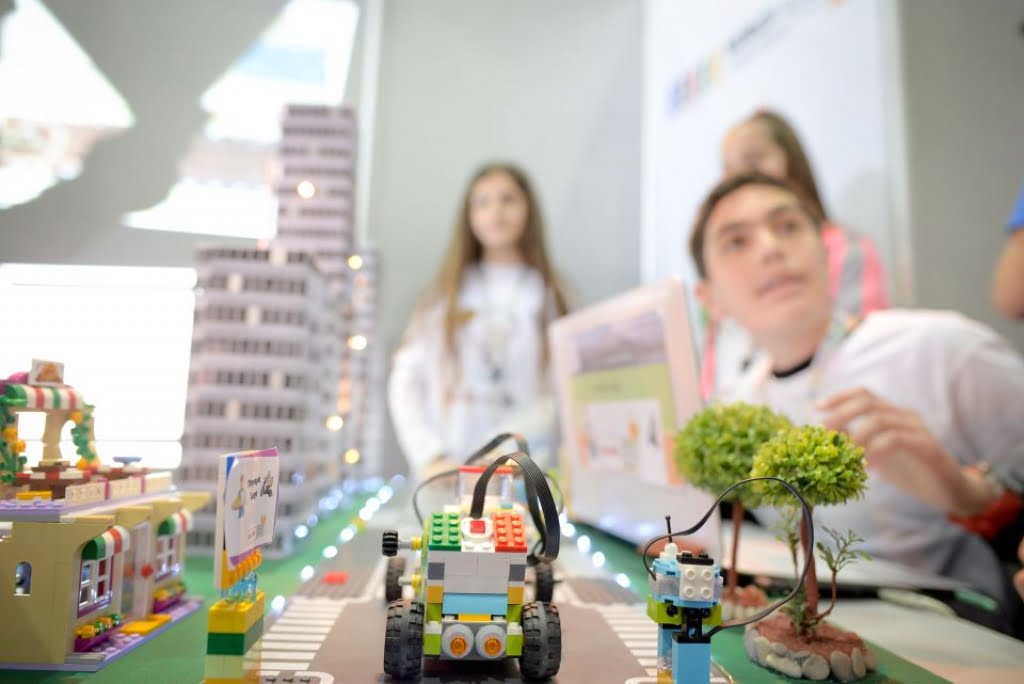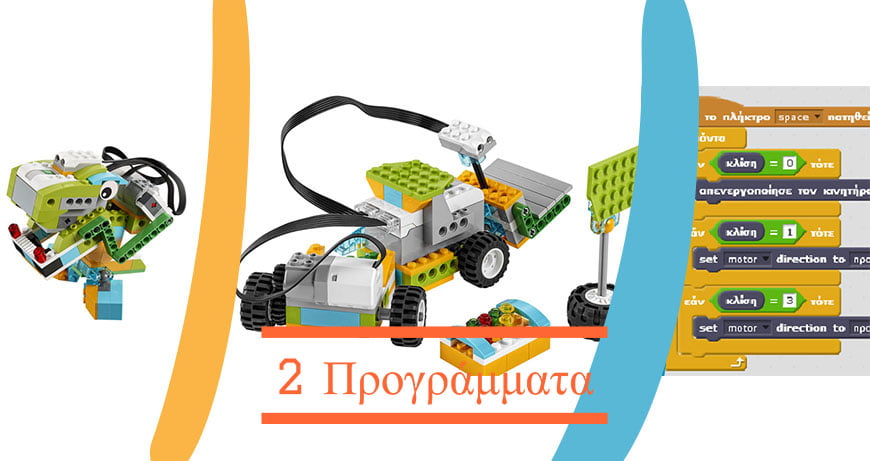Engineering

Introduction to Automation is designed for elementary students where, through teamwork around the construction of a robotic model that interacts with the real world in real time, children live an exciting and entertaining experience that they do not want to end!
Each construction follows a “code” that is the product of the students’ computational thinking and is realized in the digital environment of MIT Scratch 2.0.
The whole creating process is done with the LEGO WEDO 2.0 and involves children in practical, active, teamwork, helping them to gain knowledge and linguistic skills through asking questions, looking for patterns, choosing strategies, and drawing conclusions.
Interdisciplinary knowledge
- Science: Newton’s laws, friction, Velocity, Acceleration, Energy
- Technology: Complex mechanisms, automated robotic models
- Engineering: Motion, Simple Machines, Mechanical advantage
- Mathematics: Algorithm, Fraction, Operators
Chapters
Chapter 1: Introduction to Robots & Robotic Constructions, Simple Machines and Mechanisms
Chapter 2: Scratch’s programming environment, drive engine construction and remote control
Chapter 3: Introduction to sensors and automation, remote control selection or robotic construction autonomy
Chapter 4: Simple algorithms in programming the autonomy of robotic constructions (decisions, repetitions, operators, variables)
Chapter 5: Advanced robotic structures
